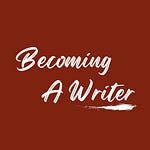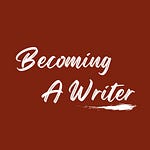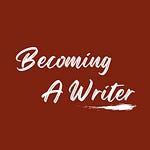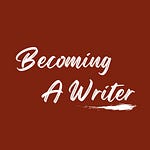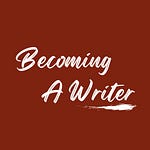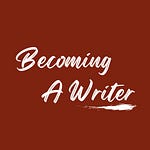Show Notes -
Episode Summary:
In today’s episode, we dive into a refreshing mindset shift for writers: Write like you read. Whether you're crafting fiction or non-fiction, approaching your book with curiosity, imagination, and conversational flow can not only make the writing process more enjoyable, but also make your words resonate more deeply with your readers. We talk about how letting your story unfold like a movie in your mind or a conversation with a friend can lead to powerful creative breakthroughs and a stronger connection to your work.
Key Points Discussed:
The Movie in Your Head: How visualizing your scenes like a movie can help fiction writers write immersive, emotionally rich stories.
Scene Spontaneity: Embracing unplanned moments that emerge during writing can be a sign of creative flow.
Write Like You Read: Letting the next scene or paragraph surprise you, just like when you're reading a great book.
Fiction Writing Tips - the movie mindset.
Non-Fiction Writing Tips - the conversation mindset.
Avoiding Perfectionism: Writing your first draft is about freedom, not flawlessness. Editing will come later.
Why Writing Like This Helps: It reduces overwhelm, unlocks creativity, and makes writing more enjoyable and sustainable.
Takeaways:
Your story might already know what it wants to be. Let it lead you.
First drafts are not for perfection—they're for discovery.
Writing like you're reading (or watching a movie or talking to a friend) brings joy back into the creative process.
Let your writing breathe—you’re not just crafting words, you’re crafting an experience.
The goal is not to control the story, but to collaborate with it.
Whether you’re a panster or a plotter, surprise is your friend.
Write from a place of curiosity, not control.
Transcript -
Podcast Intro -
Welcome to Becoming A Writer podcast, where writing inspiration is served fresh in 20 minutes or less, every 2nd and 4th Saturday.
I am Rubina Gauri Gomes, and together we'll learn how to explore, experiment with, and express our writer selves.
If this speaks to your writing journey, give the podcast a listen! If you enjoy it, I'd love for you to leave a review so others can find it, too. Don’t forget to share your suggestions or questions through the form in the show notes, and let’s grow this community together!
You can find more conversations like this and download your free Writer's Mental Toolbox PDF at rubinagomes.substack.com.
Now, grab a cup of your favourite drink, and let's have a quick chat.
Episode -
Hello, my writer friends! Rubina here.
In our previous conversation, we discussed why it is foolish of us to think no one will read our book, and why it is crucial that we write and share our words.
Today, for our thirty-ninth conversation, I would like to talk about writing your book like you read one.
The Movie In Your Head.
Let me ask you a question to start this conversation, and this one is for fiction writers.
As you write your story, do you see it playing as a movie in your mind? You know what I mean. Like seeing your characters move about, doing something, or talking to someone, or simply sitting alone and contemplating?
I ask this because I do see my story play in my mind, and I am sure I can't be the only one.
One scene I clearly remember seeing in my head was my protagonist sitting on the steps outside her house, smoking a cigarette and having a difficult conversation with a friend from her past. As the scene unfolds, the protagonist notices the five-year-old daughter of the neighbour across walking towards them, which makes her immediately stub out her cigarette and her sad feelings before the girl reaches her.
And you know what's the best part? I hadn't planned this scene. It just came to me. All I knew before I sat down to write this scene was that my protagonist and her friend would have a tough conversation, which would force my protagonist to choose to investigate a murder that was hitting too close to home. What I didn't know was that my protagonist had a neighbour she was friendly with, and whose daughter is a sassy protector and thought the friend was troubling the protagonist, and therefore she came over to check on her.
Also, just as I was finishing up this... stream of creative consciousness scene, I also got a glimpse of a possible future scene that connected with this one.
The invigorating rejuvenation I felt after my writing session is beyond my comprehension to explain, but it is the best feeling to experience as a writer. It was as if I were in the prime creative space for the Creative Gods to write through me. The words just flowed out of me, and didn't even need any editing later!
It was as if I were reading my own novel, one word at a time, and getting surprised at what was unfolding.
That's when I realised that I was writing my book as if I were reading one.
Write Like You Read.
You could also phrase it as "Write like you're watching a movie" or "Write like you're having a conversation with a friend." All three of these phrases bring us the same understanding.
Just like you don't know what's coming up next in the book you're reading, it's okay to let yourself be surprised by the book you're writing. Let it freely present to you what you could possibly write in the next scene.
This works best for pansters, who are anyway letting the story show them the way. And this is useful for plotters as well.
Writing your book is a serious, passionate endeavour. But that doesn't mean you can't let yourself have some fun, and let yourself get excited and surprised by what's coming next.
While reading a book or watching a movie, you are not obsessively worried about how it will conclude. You are enjoying the story while also wondering where and how it'll end. So, when writing your own book, why do you give up on wondering and sit in the pit of obsessive worrying?
If you try to dictate the flow and direction of your book too strictly, chances are it’ll end up being one-dimensional, like the brain-melting, boring textbooks we had in school. But if you give your book the safe space to show you all its possibilities, planned or unplanned, you can use that to turn the book into a living, breathing entity.
Now you may be thinking that doing so would be a waste of time. I will tell you that it's not. When you let yourself explore all the possible avenues of your book, you will have a better picture of the whole writing project. This will therefore allow you to choose the best route and ending your book deserves, not what your logical brain finds logical, familiar and thus safe. This is where the editing phase comes into play - to bring a cohesive flow to the creativity you gave permission and freedom to run wild during the writing phase.
When writing, especially your first draft, it is not about getting it right. It is about getting it written. If you try to get it right in the first shot, you’ll dive into perfectionism headfirst and end up never writing or finishing your project. And what doesn’t get written can’t get published and shared with your readers.
Now, to understand why and how we should write like we read and let our words surprise us, we'll divide the conversation into two parts - one for fiction writing and the other for non-fiction writing.
For Fiction Writers
For fiction writers, writing your novel, short story, or script is definitely about seeing the story in your mind.
Some scenes might play on their own, while other times, you want to consciously wonder what your characters are doing or experiencing next. You want to see, hear and feel what's happening in the scene. When you do this and then write the scene, you make your descriptions richer and more immersive, which will resonate with the readers. Like Robert Frost said, "No tears in the writer, no tears in the reader. No surprise in the writer, no surprise in the reader."
You also want to imagine different angles. In movie-making terms, it would be
Wide shots to establish the scene, the mood, and the environment.
Close-ups to show emotions - a trembling hand, a clenched jaw, or that drop of tear, followed by a smile as the character relaxes, and
Over-the-shoulder shots for dialogue to see one character’s reaction as another speaks.
This helps guide the reader's focus - what they see and feel at any given moment.
Seeing your story as a movie in your head also helps in showing, and not telling. We writers often end up dictating the actions in a scene as if re-telling an incident to a friend. That makes the writing dull and static. Instead of summarising the events, what you want to do is make the readers experience the story. You want to show emotions through body language, action, and dialogue rather than just stating them.
Doing so will also enhance your characters' presence. By imagining characters moving, reacting, and interacting in real-time, you make your characters more alive and authentic. You’re more likely to notice subtle details—like the way someone shifts uncomfortably, clenches their fists, or avoids eye contact.
You can also fine-tune the pacing of your story to determine how a scene feels to the audience.
Fast-paced scenes have short, snappy sentences (like quick cuts in action films).
Slow, emotional moments are longer, descriptive passages (like a lingering shot on a character’s face).
Also, a great movie makes us feel something deep inside us because it taps into emotion through visuals, sound, and performance. Writing with a movie-like mindset will help you create such moments that resonate deeply with your readers.
And finally, writing like you're watching a movie makes writing more fun and effortless for you. If you let your mind “watch” the story as you write, you also avoid getting stuck in overthinking. It becomes a natural, creative flow, allowing your subconscious to take over and surprise you.
For Non-Fiction Writers
Now let's talk about non-fiction writing. Writing your nonfiction book like you're having a conversation with a friend is an excellent idea because it makes your words more engaging, relatable, natural and, therefore, memorable.
You start by imagining you’re with a friend who’s curious, seeking guidance, or just eager to hear your perspective. How would you explain your idea to them over coffee? What tone would you use? Would you crack a joke or share a personal story?
You want to make sure you feel more personal and approachable. You want to have a conversational tone that makes your readers feel like you’re speaking directly to them, not at them. Instead of sounding like a distant expert, you want to become a trusted friend or mentor who genuinely cares about their journey.
This also means you want to use simple, clear, and engaging language—the way you’d naturally speak, but with a bit more structure.
You will also make complex ideas easier to understand. If you were explaining something to a friend, you wouldn’t use jargon or long-winded explanations. Instead, you’d break it down simply and clearly—just like in a book that truly helps and resonates with readers.
Adding personality to your writing is a must here. Share your personal stories and relatable examples - Anecdotes make the reader feel like they’re learning from a real person, not just reading advice. Ask questions to engage the readers in a conversation, even if it's just in their minds. Use humour - Even serious topics don’t have to be dry. If it fits your style, add playful metaphors, light sarcasm, or witty asides to keep things lively. Also, in conversations, we don’t speak in walls of text. Short paragraphs, lists, and even one-liners make writing feel breezy and engaging. And also end your writing with encouragement, not just information - In a real conversation, you wouldn’t just drop facts and walk away. You’d leave your friend with a takeaway, an action step, or a boost of motivation.
Doing the above will make your readers stay engaged longer with your words, as it feels like a warm, enjoyable chat over coffee.
It will encourage connection and trust between you and your readers as they'll feel you understand them.
And, just like with fiction writers, when you drop the pressure of “sounding like an author” and write the way you talk, your writing flows more naturally and feels fun to do. It feels like you’re sharing insights, not forcing perfection.
Conclusion
The moral of the story is - don't worry about your writing to the level of obsession. You became a writer for two primary reasons - one, you read a book that ignited the writer spark in you, and second, you want to share with others the thoughts and feelings that the spark created.
If you worry yourself sick during the writing process, you'll have a hard time finishing it. So, even though being a writer is a strong privilege and responsibility, let yourself ease into the writing process. And why would you want to do that? - because writing a book isn't about you, it's about the book.
Well, that's it for today.
Until next time, keep writing, my friend.
Podcast Outro -
Thank you for catching up with me today.
I hope you found some inspiration to help you grow a deeper relationship with your writer self.
If you enjoyed today’s episode, don’t forget to follow the podcast and drop a review! You can also share any suggestions or questions with me through the form in the show notes.
You can find more conversations like this and download your free Writer's Mental Toolbox PDF at rubinagomes.substack.com.
That’s a wrap for now! See you later!
📚 My non-fiction book for writers -
Soul Writer vs. Social Writer - Find Out Which One Are You?, Why Is It Important, and Finding Your Sweet Spot.
Amazon US | Amazon UK | Amazon India
🏡 My homes on the internet -
Spotify | Apple Podcast | Amazon Music
YouTube | YouTube Music | Substack (podcast)
A Rubina’s Bojra Production
Directed By: Rubina Gauri Gomes
Produced By: Rubina Gauri Gomes, Books She Has Read, And Life Lessons She Has Learnt
Written By: Rubina Gauri Gomes
Host & Voice Talent: Rubina Gauri Gomes
Music by: Happy Lazy Loop by Serge Quadrado (At Adobe Stock)
Audio-Visual Edited By: Rubina Gauri Gomes
Marketed By: Rubina Gauri Gomes
Fueled By: Coffee ☕
Made With Love, For Fellow Writers And Creatives.🤍








